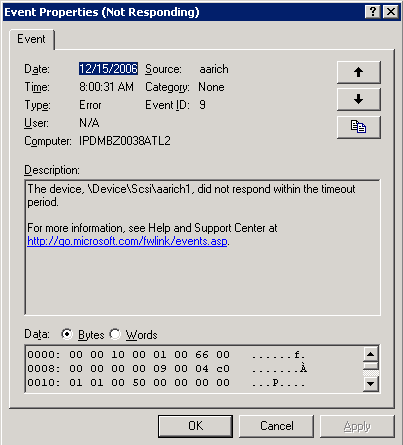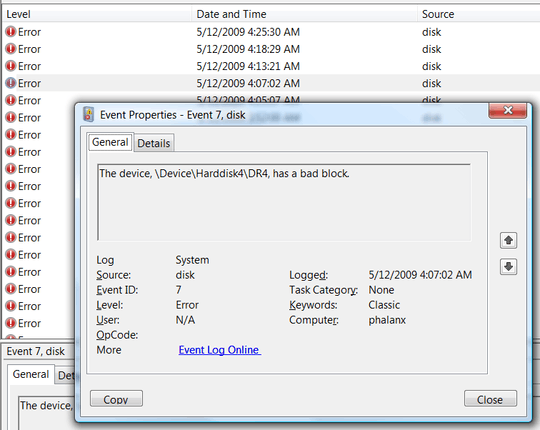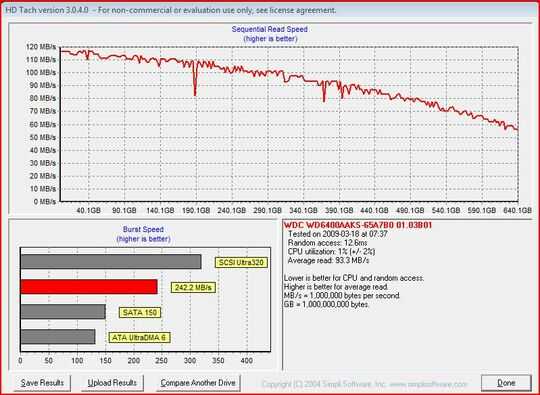0
Tonight, while working away on my PC, it started temporarily freezing. First, I'd hear a louder-than-usual click from the hard drive bay. Then, nothing would seem out of the ordinary until I actually clicked or right-clicked on something. Then, I'd get the little spinning ring (this is on Windows 7). The mouse would still move, but Explorer became unresponsive. Sometimes, I could use Alt-Tab to get to the app switcher, but it wouldn't actually switch apps. Then, after a pause of 15 seconds to a few minutes, everything would come back to life.
My strong suspicion was that this was due to a problem in one of the hard drives, but I couldn't tell which one (unless I wanted to take them all out, arrange them on the floor, and then surf the web while my ear was between them).
This is not the first time I've seen drives do this. But all of the tools I've ever used (Norton NDD, Spinrite, Ontrack, etc,) all seem to just try to read all of the sectors. But here's the weird thing: when I've seen drives fail like this, the first symptom is that they seem to, eventually, successfully perform the read (so the bad-sector scanner is happy). They just take 30 seconds to come up with a given sector.
Before I write a tool to read all of the sectors for errors AND anomalous delays, I figured I'd ask: does anybody know of a tool (for Windows, Linux, or on boot-cd) which can detect per-failure symptoms like this?



SeaTools (last time I used SeaTools DOS) has an acoustic test that will spin down a drive then spin it back up, so you can use it instead of tak(ing) them all out, arrang(ing) them on the floor, and then surf(ing) the web while my ear was between them. – ta.speot.is – 2012-01-15T12:27:49.727